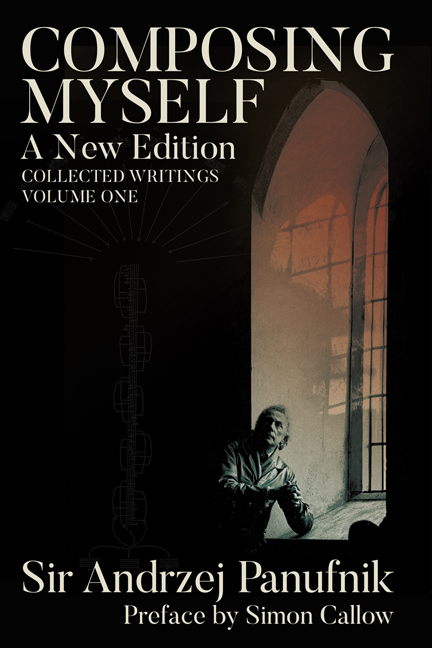14 - Back to Composition
Published online by Cambridge University Press: 09 January 2024
Summary
My mind now lit on the Polish proverb, ‘Nothing is so bad that it cannot be turned to good!’ Suddenly, fate had arranged that I would again have time to compose.
Not counting my film scores, my last new composition had been my Tragic Overture in 1942. With a five-year break in my serious creative work, how was I going to find the resources within me to start again?
While abroad I had become conscious of the growing fashion in Europe to compose dodecaphonically. This seemed to me too easy a way out; the straight exchange of one convention for another. I had not abandoned my ambition to seek out my own language, my own voice, if only I could achieve it.
Meanwhile, theories apart, I had to know if I could still compose at all. I began tentatively to improvise on the piano, exploring harmonic, melodic and rhythmic ideas, gradually making additional searches to extend some purely pianistic possibilities. Even three years after my daily wartime performances, my fingers were still in good running order, and I was able to juggle with technique without difficulty. Before long, to my great relief, musical ideas, orchestral as well as pianistic, began to surge into my imagination.
I decided to stay for the moment with the piano and to compose a cycle of twelve studies. Each piece would strongly contrast with the previous one in terms of tempo and dynamic – but, to achieve unity, all were based on the same melodic line, rising and falling like a double wave, with a different key for each study. The first was in C sharp, (major-minor), the next in F sharp, a fifth lower; the next in B, again a fifth lower, continuing in this manner, descending a fifth each time. After twelve such descents, the circle was completed and I arrived back at C sharp, having used every key in the scale. For this reason I named the work Circle of Fifths (later it was published as Twelve Miniature Studies).
With my Circle of Fifths safely written, and my faith in myself as a composer re-emerging, I now felt ready to tackle something more substantial, though my work conditions were not perfect. I still had to travel more than I had imagined, to Łódź to carry out my duties for the Film Unit and to Warsaw for various outstanding commitments.
- Type
- Chapter
- Information
- Composing Myselfand Other Texts, pp. 194 - 199Publisher: Boydell & BrewerPrint publication year: 2023

